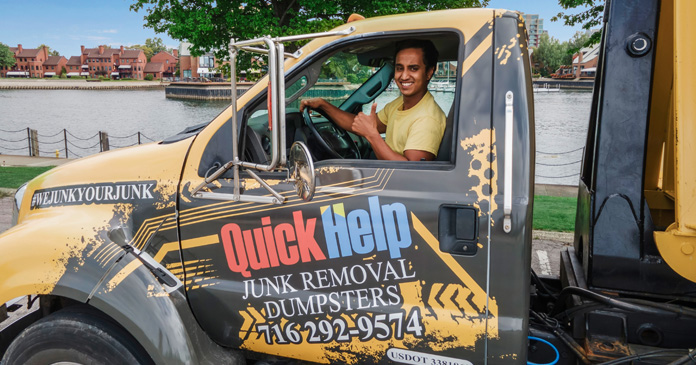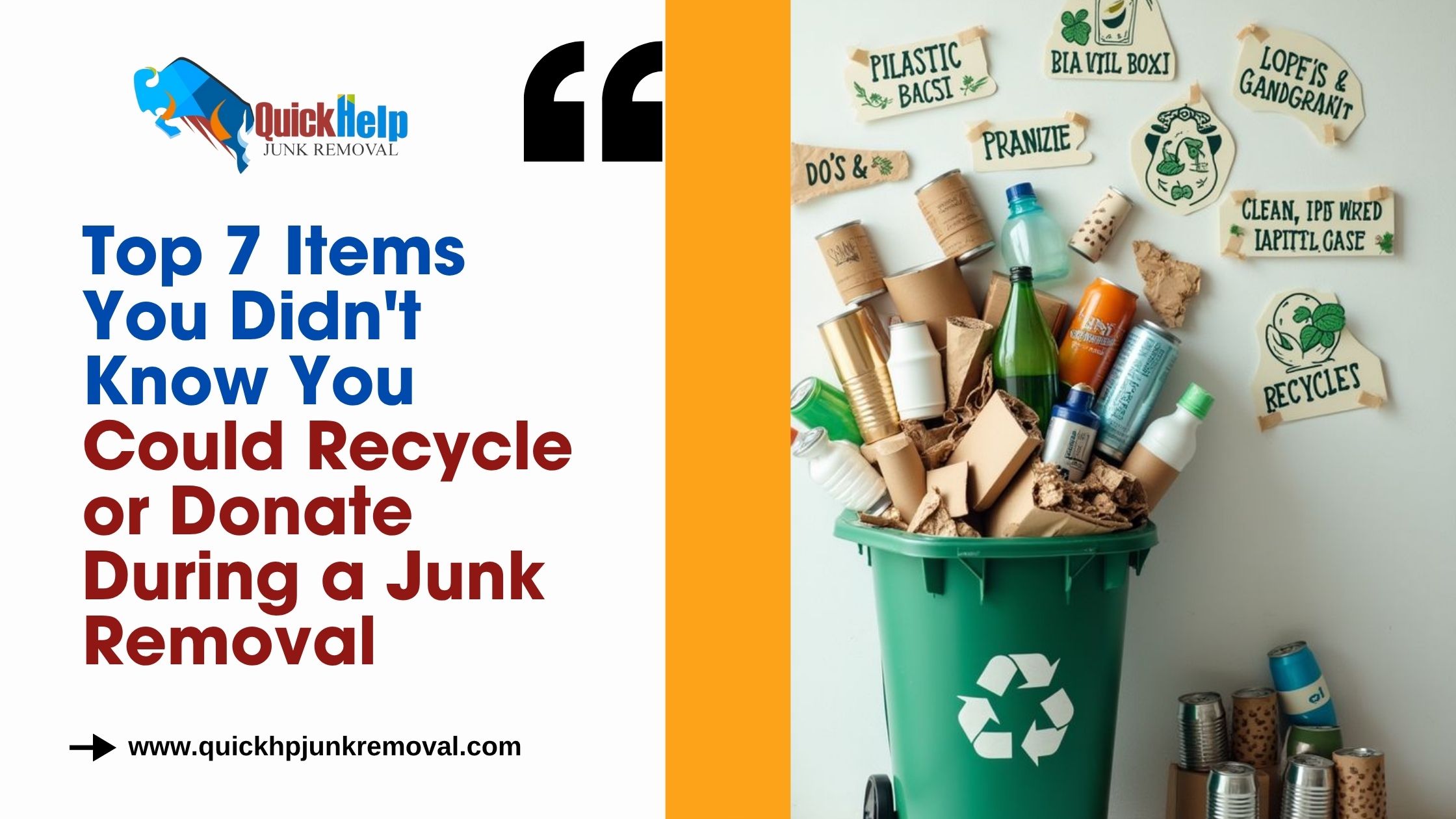Standing in front of that overflowing garage or basement, staring at years of accumulated “stuff” and wondering what’s actually worth keeping versus what needs to go? You’re not alone. The average American household contains over 300,000 items, and when it’s time for a major cleanout, most of us default to the same strategy: trash bag, dumpster, done.
But here’s the thing—you’re probably throwing away items that could easily be recycled, donated, or even sold for cash. I’m talking about everyday objects sitting in your junk pile right now that have a second life waiting for them.
You might be surprised to learn that up to 80% of household items can be diverted from landfills through recycling or donation programs. The problem? Most people simply don’t know where to look or what’s actually accepted.
Let me show you seven common household items that you’ve probably been tossing in the trash, along with exactly where to take them and why it matters. Trust me, once you see how easy this is, you’ll never look at junk removal the same way again
Think that old printer or pile of magazines doesn’t make a difference? Think again. The EPA estimates that Americans generate over 292 million tons of waste annually, with only about 35% being recycled or composted.
Every item you divert from the landfill reduces methane emissions, conserves raw materials, and often supports local community organizations. Plus, many of these disposal alternatives are completely free—saving you money on disposal fees while doing good for the environment.
The secret is knowing what to look for and where to take it. Most cities have infrastructure for handling these items; you just need to know how to access it.
Item #1: Old Electronics and Cables
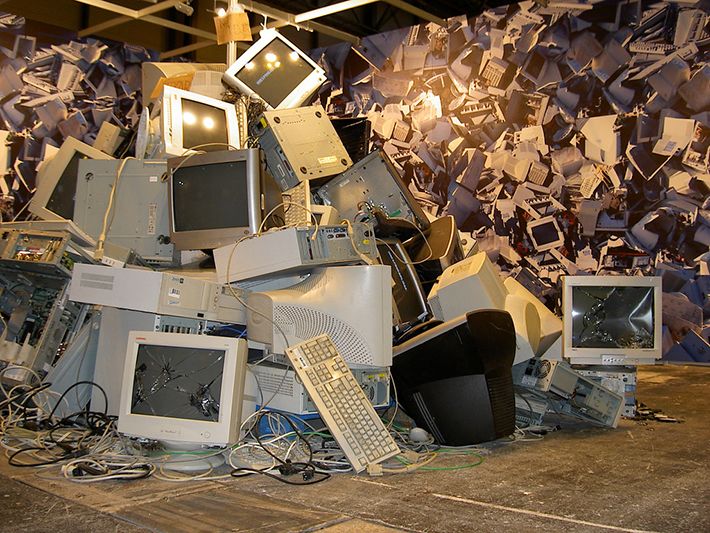
What Most People Do Wrong
See that tangled mess of old phone chargers, broken laptops, and outdated tablets? Most people toss them straight into the trash without a second thought. But electronics contain valuable metals like gold, silver, and copper—along with toxic materials that shouldn’t end up in landfills.
Where to Take Them
Best Buy accepts almost all electronics for recycling, regardless of where you bought them. No purchase necessary, and they’ll even take items that don’t work anymore. Staples has a similar program for smaller electronics and accessories.
Many cell phone providers offer trade-in programs even for broken phones. That cracked iPhone might be worth more than you think, or at least qualify for a store credit.
The Hidden Value
Some vintage electronics have surprising resale value. Original gaming consoles, vintage computers, and even old cell phones can command good prices from collectors. Check eBay sold listings before you recycle—you might have a goldmine gathering dust.
Item #2: Textiles and Clothing
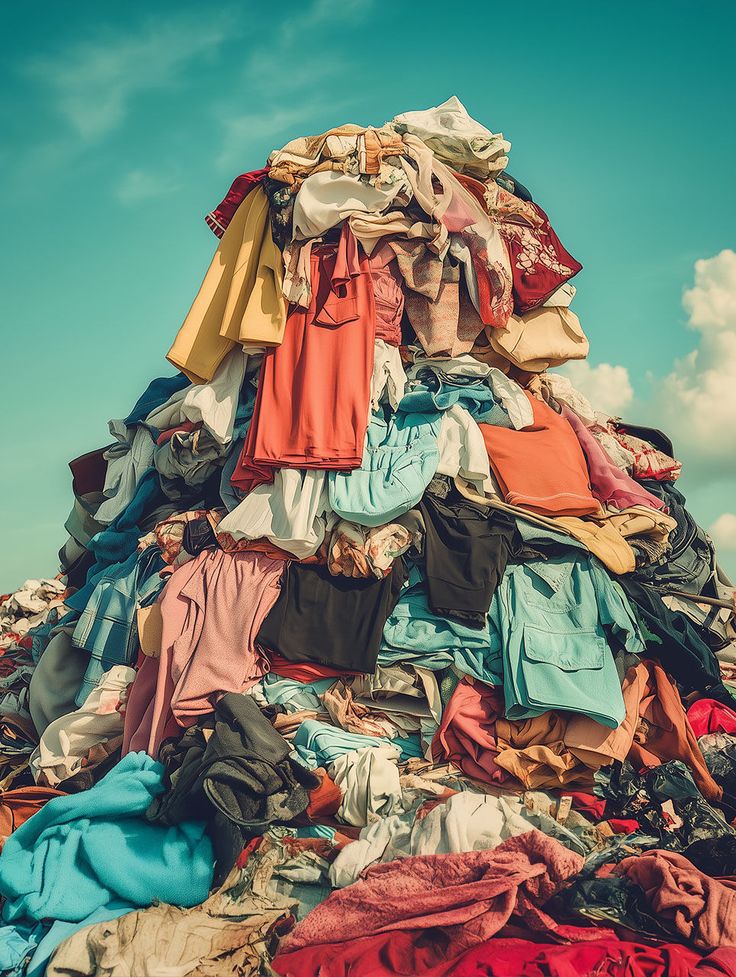
Beyond Goodwill: Specialized Textile Recycling
Everyone knows about donating wearable clothes to thrift stores, but what about items that are too worn, stained, or damaged to donate? Most people assume these textiles are trash, but they’re actually highly recyclable.
Where Damaged Textiles Go
H&M, Uniqlo, and other major retailers accept any brand of clothing for recycling—even items with holes, stains, or missing buttons. They’ll turn these into insulation, cleaning rags, or even new textiles.
For Good and Planet Aid have collection bins throughout most cities that accept all textiles, including shoes, belts, and household linens. Even single socks and underwear can be recycled into new products.
The Environmental Impact
Textile recycling saves significant water and energy compared to producing new materials. Plus, keeping clothes out of landfills reduces methane emissions—textiles are one of the fastest-growing waste streams in America.
Item #3: Books and Magazines
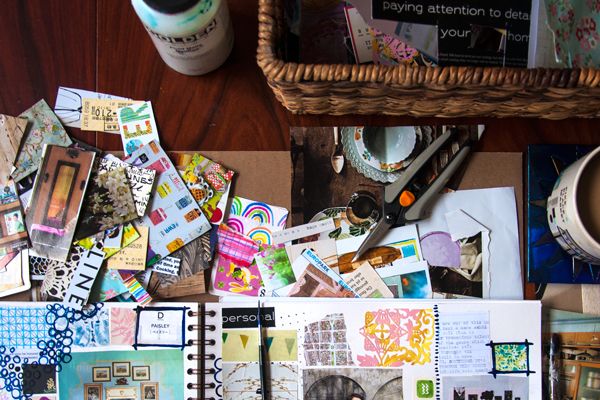
More Than Just Library Donations
That stack of old magazines, outdated textbooks, and paperback novels doesn’t have to become recycling bin fodder. There are numerous organizations that can give these materials new life.
Where to Take Them
Local libraries often accept book donations for their ongoing sales, but call ahead—many have specific guidelines about what they’ll accept.
Better World Books partners with libraries and schools to redistribute textbooks and educational materials. They’ll even provide free shipping labels for large donations.
Prisons and nursing homes often welcome book donations, especially popular fiction, puzzles, and educational materials. Contact facilities directly to ask about their donation policies.
The Surprising Demand
Teachers constantly need books for classroom libraries, and many will pick up donations directly from your home. Post in local teacher Facebook groups or contact schools directly—especially during back-to-school season.
Item #4: Sporting Goods and Exercise Equipment
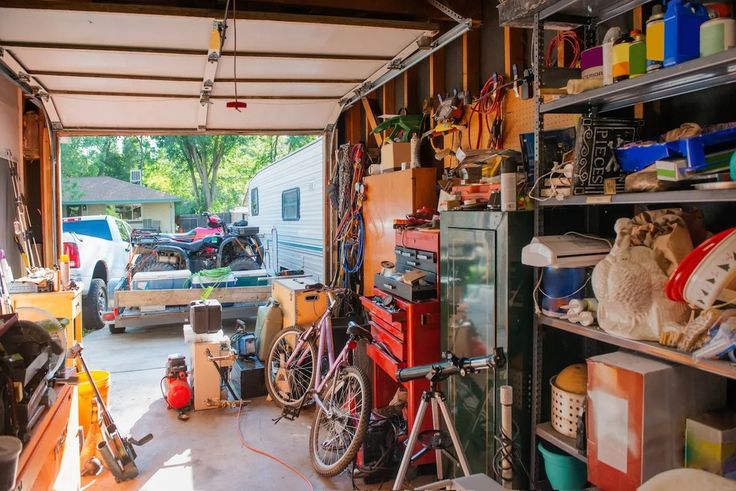
Why These Items Are Perfect for Donation
Sports equipment gets outgrown, goes out of style, or simply stops being used, but it rarely wears out completely. Meanwhile, community organizations and families struggle to afford equipment for their kids and programs.
Where to Take Them
Play It Again Sports buys and sells used sporting goods. They’ll evaluate your equipment and either purchase it outright or suggest other disposal options.
Local youth sports leagues often need equipment donations, especially for families who can’t afford new gear. Contact little league, soccer clubs, and school athletic departments.
Boys & Girls Clubs, YMCAs, and community centers frequently accept exercise equipment and sports gear for their programs.
The Community Impact
Your unused basketball hoop or exercise bike could be exactly what a community center needs to expand their programs. These donations often have immediate, visible impact on local families.
Item #5: Building Materials and Hardware
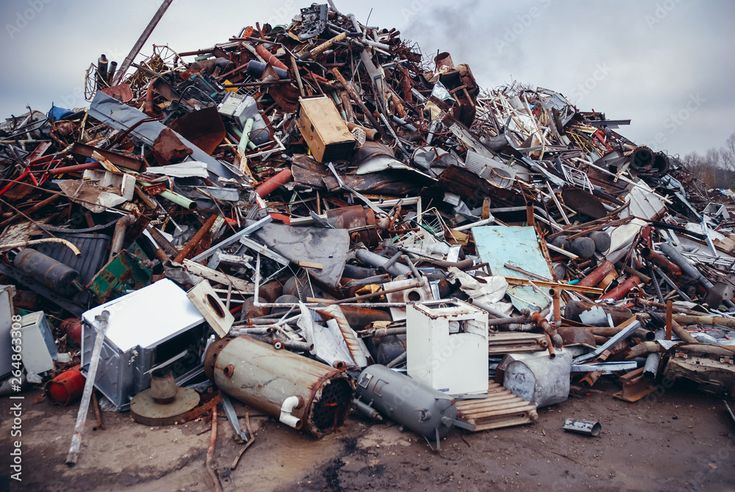
The DIY Goldmine in Your Garage
Those leftover tiles from your bathroom renovation, extra paint cans, and random hardware pieces aren’t just taking up space—they’re valuable resources for other DIYers and community projects.
Where to Take Them
Habitat for Humanity ReStores accept new and gently used building materials, tools, and hardware. They’ll even provide pickup services for large donations.
Community theaters, schools, and makerspaces often need building materials for set construction and educational projects. Many will arrange pickup for substantial donations.
The Unexpected Value
Architectural salvage companies pay real money for unique or vintage building materials. That old door, vintage light fixture, or reclaimed wood might be worth more than you think.
Item #6: Art and Craft Supplies
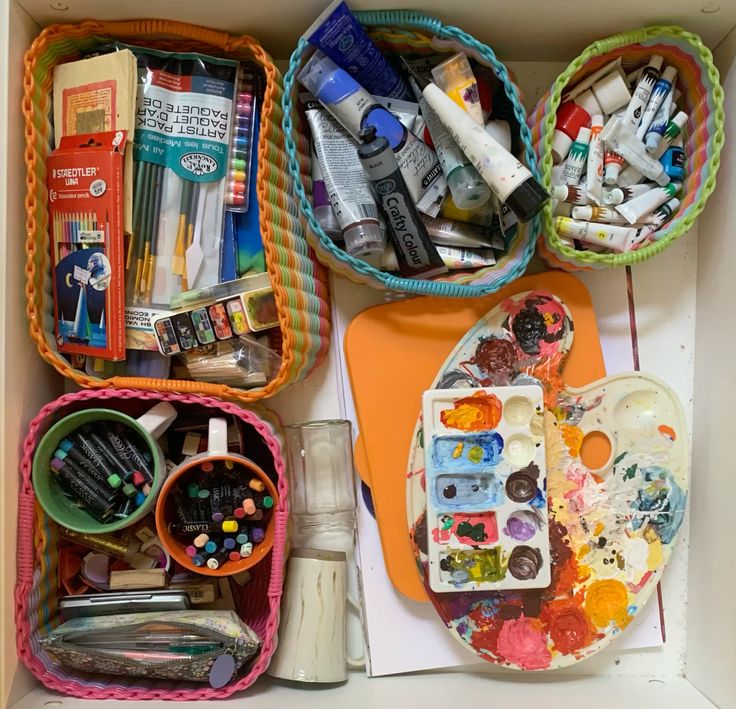
The Teacher’s Treasure Trove
Those random art supplies, fabric scraps, and craft materials gathering dust in your closet are gold to teachers, daycare providers, and community programs.
Where to Take Them
Local schools desperately need art supplies for their programs. Contact art teachers directly—many will pick up donations personally.
Senior centers and nursing homes often run craft programs and welcome supply donations. These activities are crucial for mental health and social engagement.
Boys & Girls Clubs, libraries, and community centers frequently host craft programs and need ongoing supply donations.
The Creative Impact
Art supplies enable creativity and learning in ways that few other donations can match. Your unused supplies could inspire the next generation of artists or simply bring joy to seniors in care facilities.
Item #7: Kitchen Items and Small Appliances
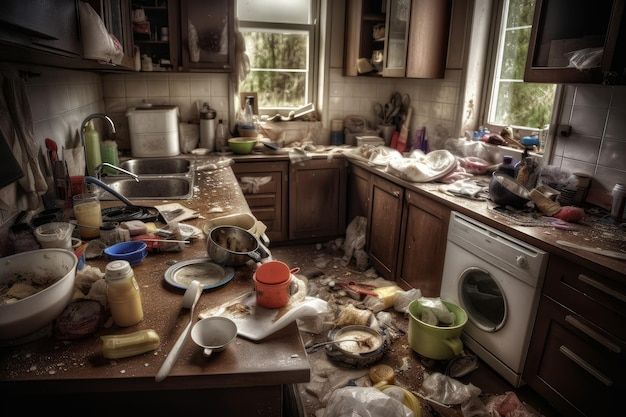
Beyond the Obvious Donation Centers
Working small appliances, duplicate kitchen tools, and even mismatched dishes have numerous second-life opportunities that most people never consider.
Where to Take Them
Transitional housing programs, homeless shelters, and domestic violence shelters constantly need kitchen items to help people establish new homes.
College students always need affordable kitchen supplies. Post in university housing Facebook groups or contact residence life departments.
Community kitchens and food banks often need small appliances and serving items for their programs.
The Multiplier Effect
Kitchen items help people achieve food security and independence. Your donated coffee maker or set of dishes might be exactly what someone needs to transition from homelessness to stable housing.
Making the Process Efficient and Rewarding

Batching Your Donations
Don’t make separate trips for each type of item. Plan donation runs by location and timing to maximize efficiency. Many organizations are located near each other, making it easy to handle multiple donations in one trip.
Timing Your Donations
Back-to-school season is perfect for educational supplies and books. Spring cleaning season sees increased demand for household items. Holiday seasons are ideal for toys and clothing donations.
Getting Recognition for Your Efforts
Most nonprofit organizations will provide donation receipts for tax purposes. Keep detailed records of what you donate—these deductions can add up to significant tax savings.
The Satisfaction Factor
There’s something deeply satisfying about knowing your items will be used rather than buried in a landfill. Many donors report that the process of mindful disposal makes them more conscious consumers going forward.
Common Mistakes to Avoid
Don’t Assume Items Are Worthless
Just because something seems outdated or worn to you doesn’t mean it lacks value. Research before you trash—you might be surprised by what people want.
Don’t Mix Donations with Trash
Keep potentially valuable or donatable items separate from genuine trash. Contaminated donations often end up in landfills anyway.
Don’t Ignore Pickup Services
Many organizations offer pickup services for large donations, but you need to schedule in advance. Don’t assume you have to deliver everything yourself.
Don’t Forget to Clean Items
Clean donations are more likely to be accepted and used. A little effort with soap and water can make the difference between acceptance and rejection.
Planning Your Next Cleanout

Building Disposal Planning into Your Timeline
Factor donation and recycling activities into your cleanout timeline from the beginning. Don’t treat responsible disposal as an afterthought.
Creating Systems That Work
Establish ongoing systems for handling items you no longer need. Regular donations are easier to manage than massive cleanouts.
Choosing Quality Over Quantity
When making future purchases, consider the end-of-life value of items. Quality goods that can be donated or recycled are often better long-term investments than cheap items that become waste.
Conclusion
The next time you’re facing a junk removal project, remember that most of your “junk” isn’t actually junk at all. From electronics that can be recycled for their valuable metals to books that can inspire new readers, almost everything in your pile has potential for a second life.
The key is approaching your cleanout strategically—identifying items that can be donated, recycled, or sold rather than defaulting to the trash bin. By taking the time to sort and research your options, you can often dispose of items for free while supporting your community and protecting the environment.
Start by walking through your space and identifying items that fall into these seven categories. Then research the specific programs and organizations in your area that accept these donations. You’ll be amazed at how many resources are available once you know where to look.
Your next cleanout doesn’t have to be a burden—it can be an opportunity to declutter responsibly while supporting causes you care about. With these strategies, you’ll never look at junk removal the same way again.
Let Quick Help Junk Removal Make It Easier
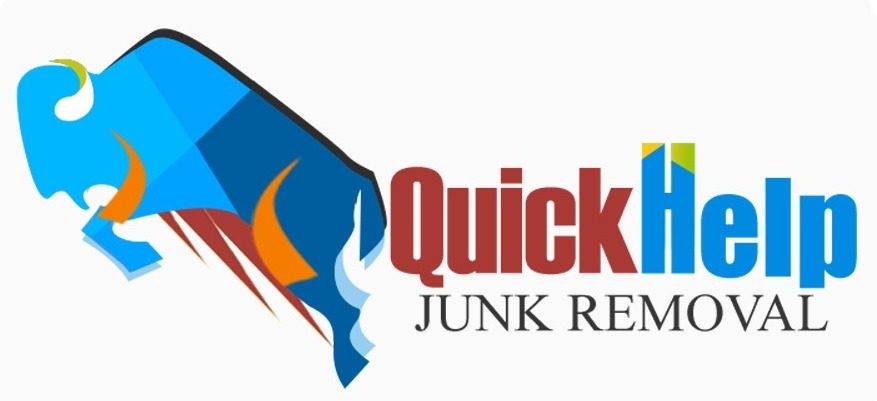
Feeling inspired to declutter and donate—but overwhelmed by how much you’ve got? Quick Help Junk Removal is here to simplify it all.
We offer eco-conscious junk removal services across Buffalo, Tonawanda, and surrounding areas. Our team does more than just haul stuff—we help sort, donate, and recycle whenever possible. You can declutter your home and feel good knowing your items might support local organizations like Habitat for Humanity ReStore Buffalo or community shelters.
Whether it’s a garage cleanout, a room-by-room purge, or a full home refresh, we’ve got you covered with:
✅ Fast Pickup Scheduling
✅ Donation-First Mindset
✅ No Dumpster Required
✅ Affordable, Friendly Service
📞 Call or text us at (716) 292-9574 or (833) 784-2547
🌐 Book online anytime at quickhpjunkremoval.com
Let’s turn your junk into joy—for your space, your community, and the planet.
